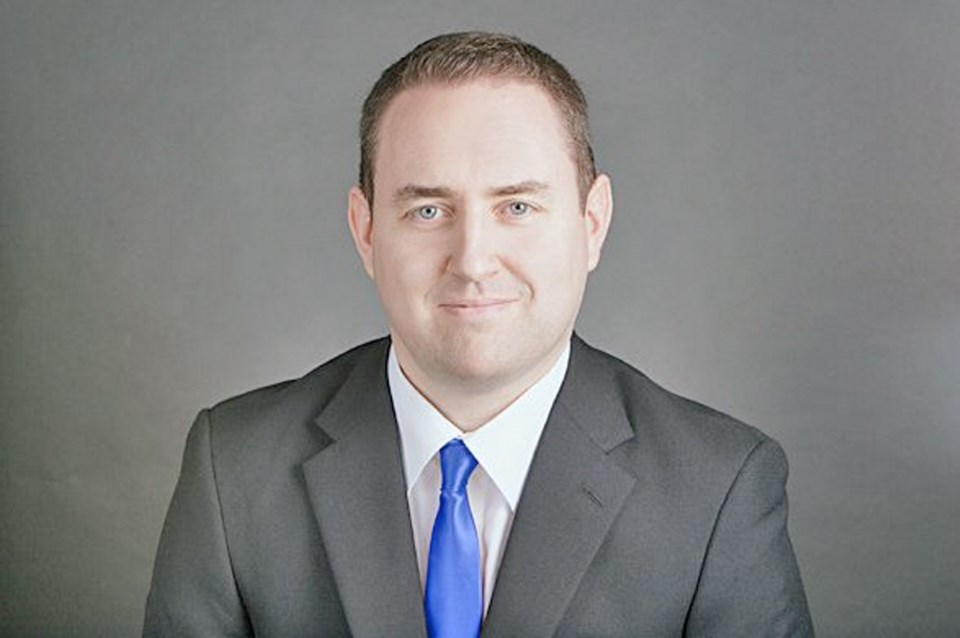Conservative Justin Greenwood set up signs with volunteers and launched a social-media campaign this week to support his bid for Nanaimo’s seat in a provincial byelection.
The Langley resident said if he wins the race Jan. 30, he will move to Nanaimo. He previously ran unsuccessfully for the Conservatives in Langley in the 2017 provincial election.
Greenwood, 37, is taking on the traditionally NDP stronghold where the three B.C. parties with seats in the legislature are engaged in a stiff battle for votes.
The Liberals, NDP and Green parties have marshalled forces and are fighting for what is a crucial seat in B.C., one that could alter the balance of power at the legislature. The NDP-Green coalition holds 44 seats to the Liberals’ 42.
Larry Giovando held the seat for the Progressive Conservatives from 1952 to 1956. For most of the years since 1963, the NDP has owned the riding, with breaks when former Nanaimo mayor Frank Ney represented Social Credit and Mike Hunter held it for the Liberals.
Greenwood, interim deputy leader of the B.C. Conservatives, has Vancouver Island roots. He was born in Victoria, raised in Central Saanich and has family on the Island, including a brother in Nanaimo.
He said he owned a paintball wholesale shop in Brentwood Bay and a pizzeria in Colwood. In 2010, he attended the Academy of Learning in the West Shore, where he completed a business administration degree.
Today, he is Vancouver-area manager for a Victoria-based real estate marketing firm.
Greenwood said since announcing his candidacy, he has been riding the ferry to Nanaimo to campaign whenever he has the opportunity. The party is planning Saturday campaign events and he intends to participate in all-candidates meetings.
Greenwood is calling for B.C. to scrap its carbon tax, saying it drives up the cost of living.
It’s time to reform Insurance Corp. of B.C. and convert it into a co-operative, he said, adding that lower-cost basic car insurance should be available through the open market. He also said B.C. should eliminate the contentious employer health tax, which came into effect this month for employers with annual payrolls higher than $500,000.
Greenwood took aim at another controversial plan, B.C.’s upcoming speculation tax targeting second homes, saying it discriminates against Canadians and will not result in more affordable housing.
The tax will be imposed on vacant homes in areas including Nanaimo, Victoria and Vancouver, with the goal of encouraging owners to rent them, or sell, in order to increase the number of available homes. Developers say this new tax will have the opposite effect and discourage construction of new homes.
Greenwood said the way to address the shortage of affordable housing is for the province and municipalities to work together to identify suitable sites and to develop programs advancing that goal.
B.C.’s Ministry of Children and Family Development needs to be revamped, he said, because Nanaimo foster parents are telling him that it’s time for an increase in rates paid by the province.



